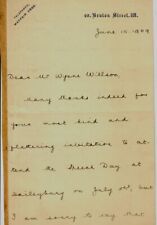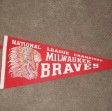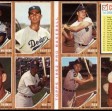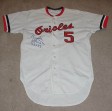When you click on links to various merchants on this site and make a purchase, this can result in this site earning a commission. Affiliate programs and affiliations include, but are not limited to, the eBay Partner Network.
Up for sale a VERY RARE! "1st Baron Quickswood" Hugh Cecil Hand Written Letter Dated 1909.
ES-9940
Hugh Richard Heathcote Gascoyne-Cecil, 1st Baron
Quickswood PC (14 October 1869 – 10
December 1956), styled Lord Hugh Cecil until 1941, was a British Conservative Party politician. Cecil
was the eighth and youngest child of Robert
Gascoyne-Cecil, 3rd Marquess of Salisbury, three times Prime Minister of the United Kingdom,
and Georgina Alderson, daughter of Sir Edward Hall Alderson. He was the
brother of James Gascoyne-Cecil, 4th
Marquess of Salisbury, Lord William Cecil, Lord Cecil of Chelwood and
Lord Edward Cecil and a first cousin of Prime
Minister Arthur Balfour. He was educated at Eton
and University College, Oxford. He graduated
with first-class honours in Modern History in 1891 and was a Fellow of Hertford College, Oxford from 1891 until
1936, when he thought he could not be Provost of Eton and a Fellow of Hertford
simultaneously. After
his graduation as BA in 1891, Cecil went to work in parliament. From 1891 to
1892 he was Assistant Private Secretary to his father, who was Foreign
Secretary. He graduated as MA
in 1894, and entered the Commons as Conservative Member of Parliament (MP) for Greenwich in 1895. He took
a keen interest in ecclesiastical questions and became an active member of the
Church party, resisting attempts by nonconformists and secularists
to take the discipline of the Church out of the hands of the archbishops and
bishops, and to remove the bishops from their seats in the House of
Lords. In a speech on the second reading of Balfour's Education Bill of 1902, he maintained that for
the final settlement of the religious difficulty there must be cooperation
between the Church of England and nonconformity, which was
the Church's natural ally; and that the only possible basis of agreement was
that every child should be brought up in the belief of its parents. The ideal
to be aimed at in education was the improvement of the national character. In
the later stages of the bill's progress, he warmly resented an amendment
approved by the House and taken over by the Ministry giving the managers,
instead of the incumbent of the parish, the control of religious education in
non-provided schools. This was not the only point on which he showed
considerable independence of the government of which Balfour, his cousin, was
the head. During the early 20th century, Cecil
(known to his friends as "Linky") was the eponymous leader of the Hughligans,
a group of privileged young Tory Members of Parliament critical of their own party's
leadership. Modelled after Lord Randolph Churchill's Fourth Party,
the Hughligans included Cecil, F. E. Smith, Arthur Stanley, Ian Malcolm and, until 1904, Winston
Churchill. Cecil was the best man
at Churchill's wedding in 1908 and the latter greatly admired his eloquence in
the House of Commons. As Churchill declared to a contemporary, Llewellyn Atherley-Jones,"How I wish
I had his powers; speech is a painful effort to me." Cecil dissented from
the beginning from Joseph Chamberlain's policy of tariff reform,
pleading in Parliament against any devaluation of the idea of empire to a
"gigantic profit-sharing business". He took a prominent position
among the "Free Food Unionists", and consequently was attacked by the
tariff reformers and lost his seat at Greenwich in 1906. In 1910 Cecil became an MP for Oxford University, which
he represented for the next 27 years. He immediately threw himself with passion
into the struggle against the Ministerial Veto Resolutions, comparing the Asquith government to "thimble
riggers". In the next year, he was active in the resistance to the Parliament Bill, treating Asquith
as a "traitor" for his advice to the Crown to create peers, and
taking a prominent part in the disturbance which prevented the Prime Minister
from being heard on 24 July 1911. But he never quite regained the authority
which he had possessed in the House in the early years of the century. He
strongly opposed the Welsh Church Bill, and he denounced the 1914 Home Rule Bill as
reducing Ireland
from the status of a wife to that of a mistress — she was to be kept by John Bull,
not united to him. In 1916 Cecil was part of the Mesopotamia
Commission of Inquiry. He was sworn of the Privy Council on 16
January 1918.










